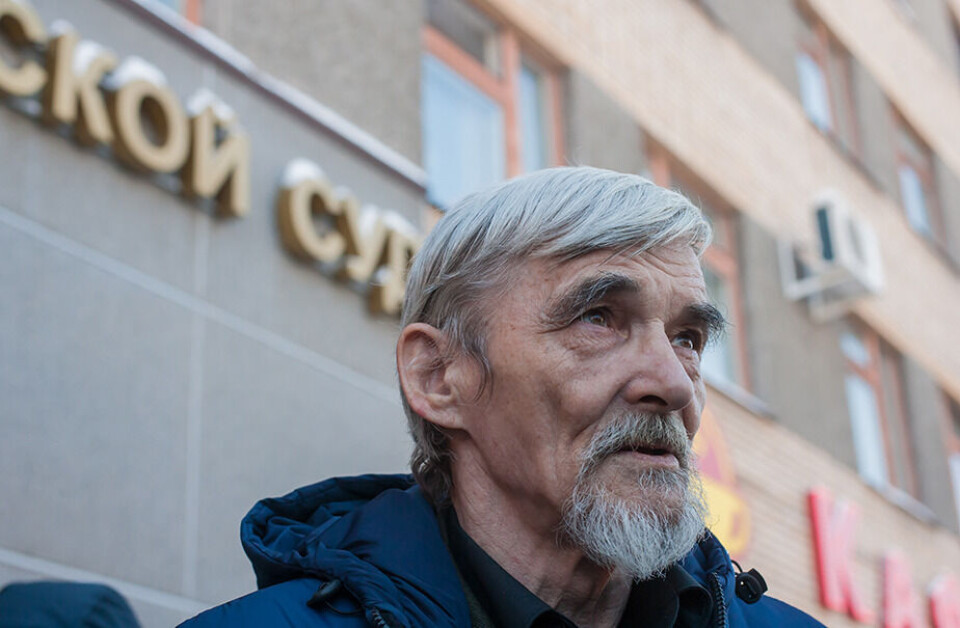
Court extends jailed Gulag historian's prison sentence to 15 years
Yury Dmitriyev is renowned for his work that shed light on Soviet-era political repressions in his home region Karelia.
A court in northern Russia has sentenced prominent Gulag historian and human rights activist Yury Dmitriyev to 15 years in prison for the second time, media reported Monday.
The latest conviction adds 2 years to Dmitriyev’s 13-year sentence last year on charges of sexually abusing his adopted daughter. Critics say his prosecution is politically motivated for his work exposing Stalin-era crimes and based on fabricated evidence. Dmitriyev himself denies the charges.
Юрий Дмитриев услышав свой очередной приговор: 15 лет pic.twitter.com/2MeBUNXKJD
The Petrozavodsk city court in northwestern Russia’s republic of Karelia found Dmitriyev, 65, guilty of child pornography and sentenced him to 15 years in a penal colony.
State prosecutors had requested a 15-year prison sentence for Dmitriyev, who is lauded for his work uncovering mass graves and identifying thousands of victims of Soviet repressions in Karelia.
Dmitriyev’s lawyers told Interfax they plan to appeal the sentence within the legally mandated 10-day period.
A court initially acquitted Dmitriyev of the charges — which his friends, colleagues and civil society insist are political retribution for his work — in 2018, only to have a second criminal case opened against him a few months later.
Dmitriyev was first convicted and sentenced to 3.5 years in prison, a term that was extended to 13 years shortly before his scheduled release.
Experts during Dmitriyev’s first trial found photographs he had taken of his adopted daughter non-pornographic. The historian maintained that the pictures were taken to monitor her health.
The European Union has urged Russia to drop the “dubious” charges against Dmitriyev.
Dmitriyev heads the Karelia branch of the Memorial human rights group, which recognizes him as a political prisoner.
Memorial’s Human Rights Center, which campaigns for political prisoners and other disadvantaged groups, also faces closure by a Moscow court this week for justifying terrorism and alleged failures to label itself a “foreign agent” in its publications.
Both cases cap off a year marked by an unprecedented crackdown on opponents of the Kremlin, which included the jailing of opposition leader Alexei Navalny and the banning of his organizations as well as declaring several media organizations “foreign agents” and blocking them for “undesirable” activities.
This article first appeared in The Moscow Times and is republished in a sharing partnership with the Barents Observer.















